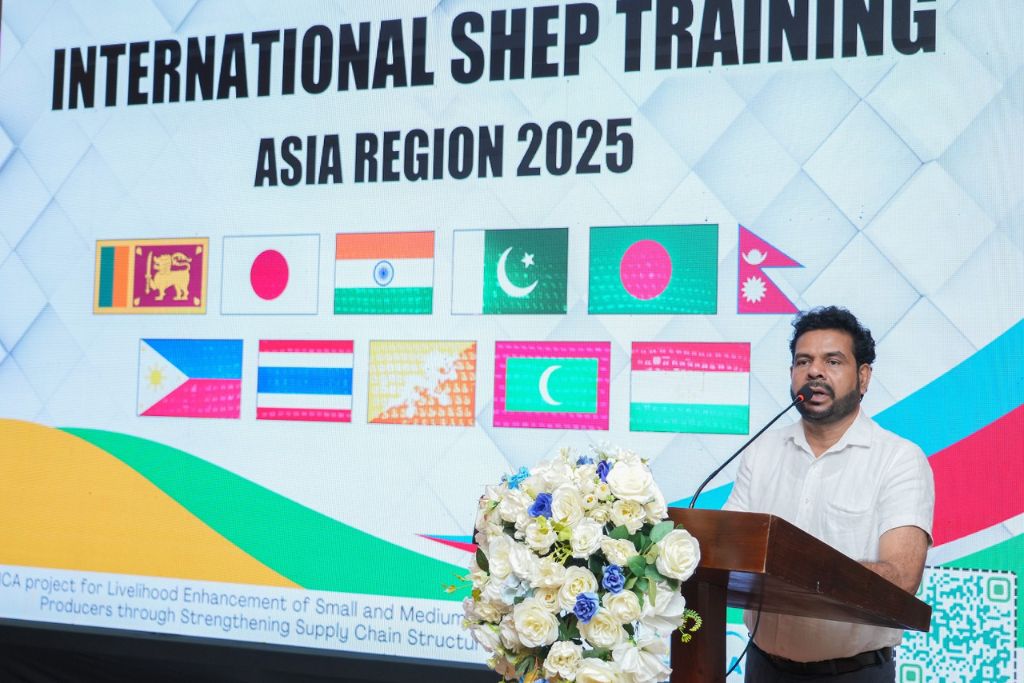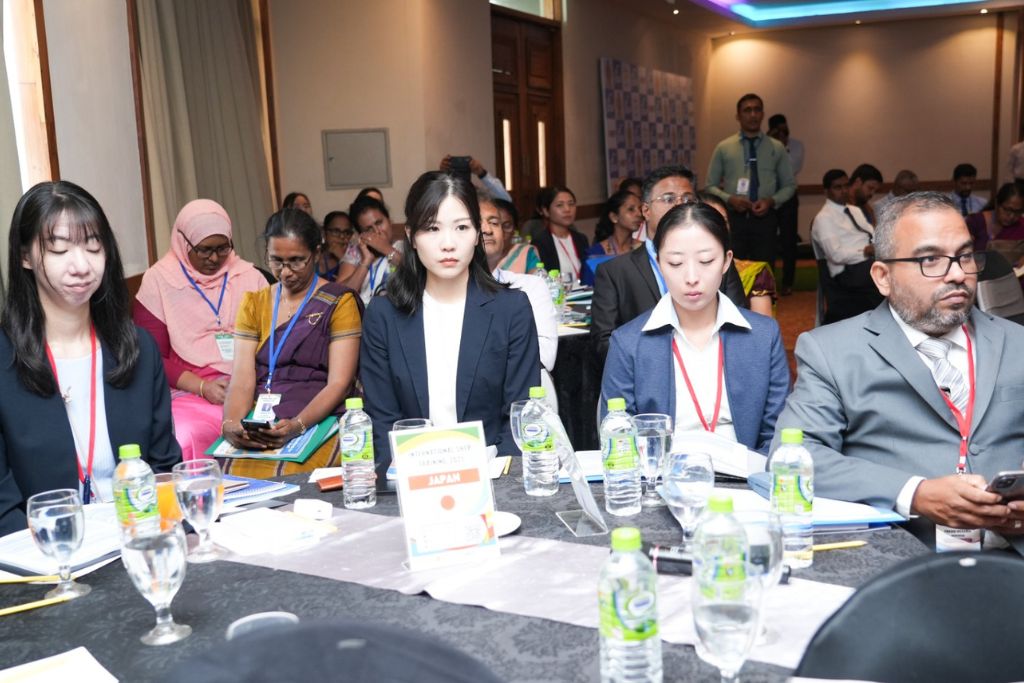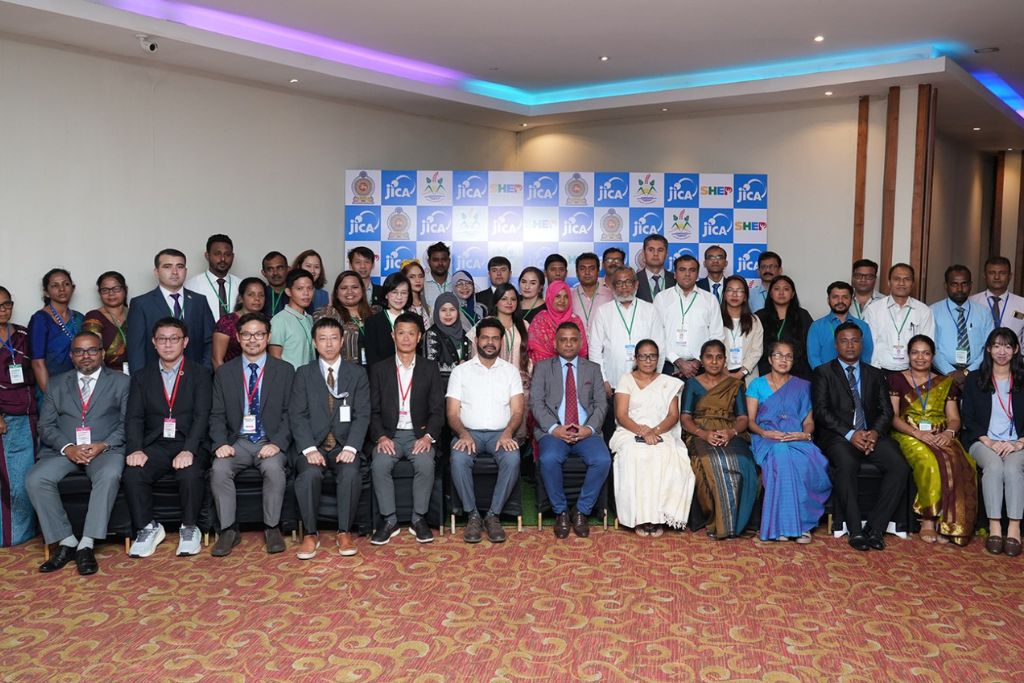The “International SHEP Training in Sri Lanka – Market-Oriented Agriculture Promotion for Asian Countries,” organized by the Japan International Cooperation Agency (JICA) and the Department of Agriculture, commenced recently at the Oak Ray Regency Hotel in Gannoruwa, with Deputy Minister of Agriculture and Livestock Namal Karunaratne as the chief guest.
The training workshop brought together officials from the Department of Agriculture, JICA Sri Lanka, JICA project staff, SHEP project staff, and trainees representing Sri Lanka, Bangladesh, Pakistan, India, Bhutan, Nepal, Thailand, the Philippines, Maldives, and Tajikistan. The workshop will be held for 5 days.
The project’s objective is to improve the livelihoods of farmers across the country by strengthening the supply chain structure and enhancing the livelihoods of small and medium-scale agricultural producers. It aims to empower small and medium-scale farmers in Sri Lanka by providing them with the necessary tools and information to grow in the current market.
“JICA SHEP training on “Vikinemata Vagakaranna” begins”
Instead of the traditional “grow and sell” mind-set, the SHEP approach encourages farmers to adopt a “grow to sell” mentality. This shift is expected to motivate farmers to cultivate what people genuinely want to buy, rather than just what they are familiar with.
Through the practical training and support provided by this approach, SHEP guides farmers on how to conduct market surveys, understand consumer demand, and make informed decisions about their crops. Farmers are expected to make their own pricing decisions, which will help them increase their income and grow their farms into agribusinesses.
The SHEP program, implemented with the direct intervention and aid of the Japanese government, has been successfully carried out in over 30 countries worldwide. It is currently active in 5 districts in Sri Lanka (Badulla, Monaragala, Anuradhapura, Matale, and Nuwara Eliya) to enhance agricultural development and improve the livelihoods and income of farmers. The SHEP approach, developed by JICA and first implemented in Kenya in 2006, has since contributed to improving the livelihoods of farmers across Africa and Asia. This approach is set to be launched nationwide through the Department of Agriculture trainees in the future.



